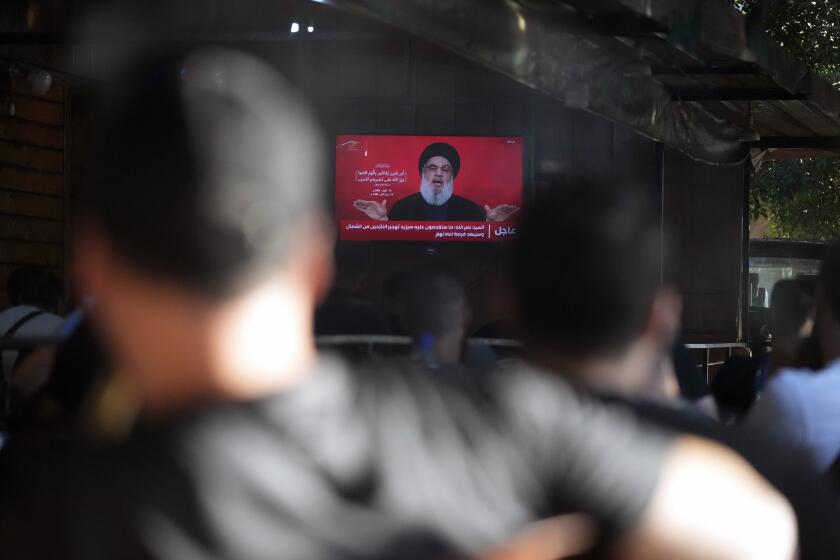Iraq War Vets to Get Follow-Up Mental Evaluations
Grappling with a growing mental health crisis among troops who have fought in Iraq, the Pentagon is planning to require service members, for the first time, to undergo psychological assessments months after they return home.
The policy is designed to tackle the burgeoning incidence of post-traumatic stress disorder among troops who have seen combat in the longest and deadliest war the U.S. has been involved in since Vietnam.
While troops already are required to fill out a three-page health questionnaire within days of leaving Iraq -- and to see a doctor, nurse or nurse practitioner to answer questions -- that assessment includes only a few questions on mental health. The assessment is taken before troops have had time to readjust to home life, and, for many, before signs of mental anguish appear.
Even if a service member is experiencing mental trauma, most are so eager to return to their homes and families that they may avoid frank answers about their toughest problems, military health officials believe.
The new assessments will focus on the mental health and readjustment issues that troops face after they have had time to reenter their home lives, said Dr. William Winkenwerder Jr., assistant secretary of Defense for health affairs.
Among soldiers who have returned from Iraq, 3% have indicated on the post-deployment questionnaires that they have a mental health problem or concern, Winkenwerder said. But among soldiers questioned three to four months afterward, that number jumped to 13% to 17%, he said.
Mental health experts with the Army and the Department of Veterans Affairs have said in recent months that there is reason to believe the war’s ultimate psychological fallout will be much worse.
“We’ve been speaking with returning soldiers and their families, and this is really just an evolution of our knowledge,” Winkenwerder said of the new screening approach. “The thrust is to bring them in and ask, ‘How are you doing? How is your family doing? Are you having stress issues? How can we help you?’ We definitely think this is the right thing to do.”
Under the Pentagon plan, the mental health assessments would be administered beginning in April to all returning troops, including members of the National Guard and Reserves. But before then, a task force of health professionals from throughout the military will develop the program.
Winkenwerder said no funds had been allocated to the new program, and said it was unclear how much it would cost. He said the Pentagon planned to work with Veterans Affairs to implement it.
Mental health professionals who deal with veterans have said that early identification of symptoms and intervention could help prevent the kind of massive psychological devastation seen in veterans of the Vietnam War. More than 30% of Vietnam veterans suffered post-traumatic stress disorder, but most went for years or even decades without meaningful treatment.
Steve Robinson, executive director of the National Gulf War Resource Center, has advocated improved mental health care for Iraq war veterans.
He applauded the Pentagon’s plans as an important first step, but cautioned that assessments and questionnaires were meaningless no matter when they were taken “unless you ensure that every soldier gets a face to face clinical encounter with a mental health professional and that, most importantly, there is follow-up.”
More to Read
Sign up for Essential California
The most important California stories and recommendations in your inbox every morning.
You may occasionally receive promotional content from the Los Angeles Times.










